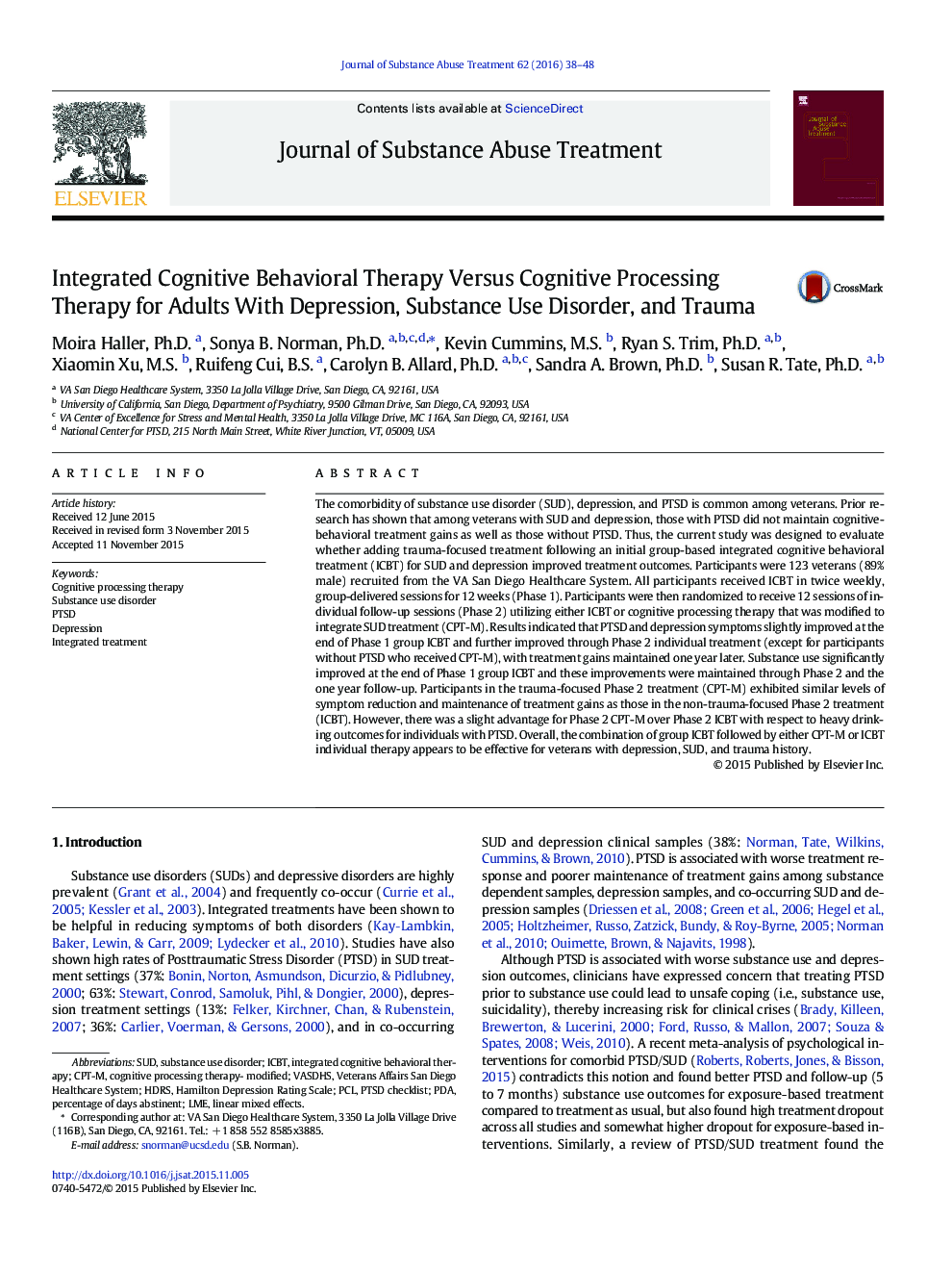| کد مقاله | کد نشریه | سال انتشار | مقاله انگلیسی | نسخه تمام متن |
|---|---|---|---|---|
| 329646 | 543574 | 2016 | 11 صفحه PDF | دانلود رایگان |
• After 12 weeks of group ICBT, veterans were randomized to individual CPT-M or ICBT.
• After group ICBT, individual CPT-M and ICBT provided similar beneficial outcomes.
• There was a slight advantage for CPT-M over ICBT with respect to heavy drinking.
The comorbidity of substance use disorder (SUD), depression, and PTSD is common among veterans. Prior research has shown that among veterans with SUD and depression, those with PTSD did not maintain cognitive-behavioral treatment gains as well as those without PTSD. Thus, the current study was designed to evaluate whether adding trauma-focused treatment following an initial group-based integrated cognitive behavioral treatment (ICBT) for SUD and depression improved treatment outcomes. Participants were 123 veterans (89% male) recruited from the VA San Diego Healthcare System. All participants received ICBT in twice weekly, group-delivered sessions for 12 weeks (Phase 1). Participants were then randomized to receive 12 sessions of individual follow-up sessions (Phase 2) utilizing either ICBT or cognitive processing therapy that was modified to integrate SUD treatment (CPT-M). Results indicated that PTSD and depression symptoms slightly improved at the end of Phase 1 group ICBT and further improved through Phase 2 individual treatment (except for participants without PTSD who received CPT-M), with treatment gains maintained one year later. Substance use significantly improved at the end of Phase 1 group ICBT and these improvements were maintained through Phase 2 and the one year follow-up. Participants in the trauma-focused Phase 2 treatment (CPT-M) exhibited similar levels of symptom reduction and maintenance of treatment gains as those in the non-trauma-focused Phase 2 treatment (ICBT). However, there was a slight advantage for Phase 2 CPT-M over Phase 2 ICBT with respect to heavy drinking outcomes for individuals with PTSD. Overall, the combination of group ICBT followed by either CPT-M or ICBT individual therapy appears to be effective for veterans with depression, SUD, and trauma history.
Journal: Journal of Substance Abuse Treatment - Volume 62, March 2016, Pages 38–48
